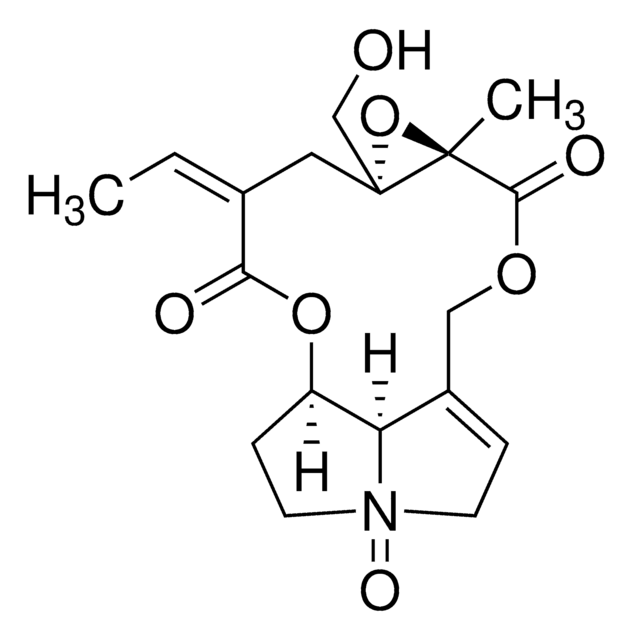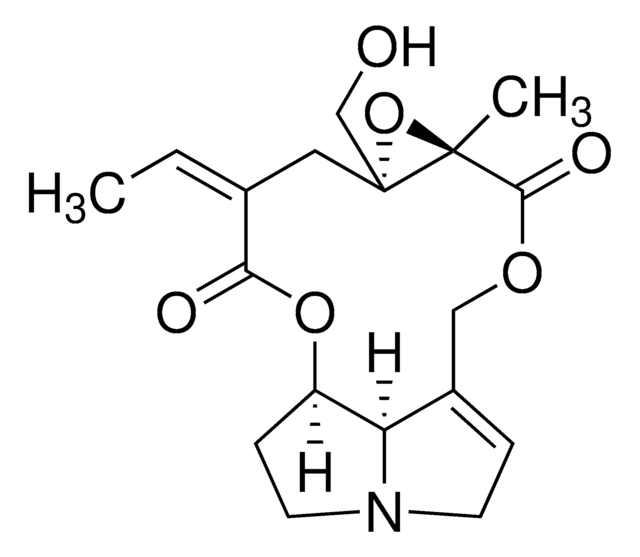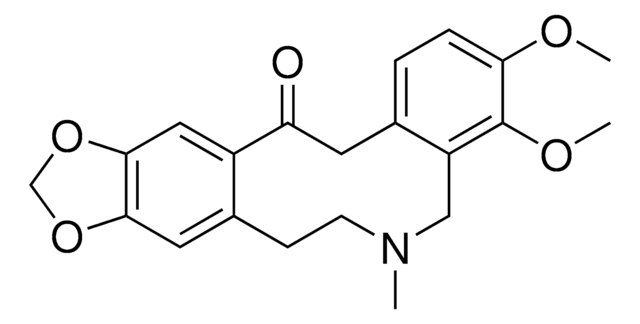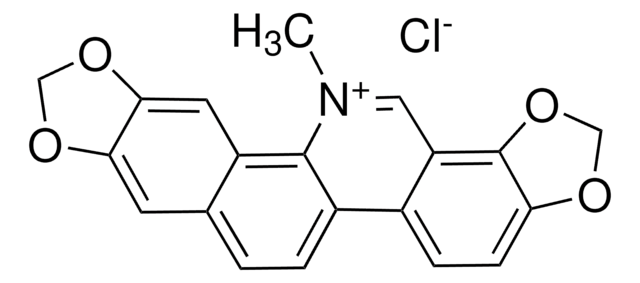220285
Chelerythrine Chloride
Naturally-occurring alkaloid.
Synonym(s):
Chelerythrine Chloride
About This Item
Recommended Products
Quality Level
Assay
≥97% (HPLC)
form
solid
potency
660 nM IC50
manufacturer/tradename
Calbiochem®
storage condition
OK to freeze
color
light yellow to yellow
solubility
water: 1 mg/mL
DMSO: 10 mg/mL
shipped in
ambient
storage temp.
−20°C
InChI
1S/C21H18NO4.ClH/c1-22-10-16-13(6-7-17(23-2)21(16)24-3)14-5-4-12-8-18-19(26-11-25-18)9-15(12)20(14)22;/h4-10H,11H2,1-3H3;1H/q+1;/p-1
InChI key
WEEFNMFMNMASJY-UHFFFAOYSA-M
General description
Biochem/physiol Actions
PKC
Warning
Preparation Note
Reconstitution
Other Notes
Jarvis, W.D., et al. 1994. Cancer Res.54, 1707.
Barg, J., et al. 1992. J. Neurochem.59, 1145.
Herbert, J.M., et al. 1990. Biochem. Biophys. Res. Commun.172, 993.
Ko, F., et al. 1990. Biochim. Biophys. Acta1052, 360.
Walterova, D., et al. J. Med. Chem.24, 1100.
Legal Information
Signal Word
Warning
Hazard Statements
Precautionary Statements
Hazard Classifications
Acute Tox. 4 Dermal - Acute Tox. 4 Inhalation - Acute Tox. 4 Oral - Eye Irrit. 2 - Skin Irrit. 2 - STOT SE 3
Target Organs
Respiratory system
Storage Class Code
11 - Combustible Solids
WGK
WGK 3
Flash Point(F)
Not applicable
Flash Point(C)
Not applicable
Certificates of Analysis (COA)
Search for Certificates of Analysis (COA) by entering the products Lot/Batch Number. Lot and Batch Numbers can be found on a product’s label following the words ‘Lot’ or ‘Batch’.
Already Own This Product?
Find documentation for the products that you have recently purchased in the Document Library.
Our team of scientists has experience in all areas of research including Life Science, Material Science, Chemical Synthesis, Chromatography, Analytical and many others.
Contact Technical Service








